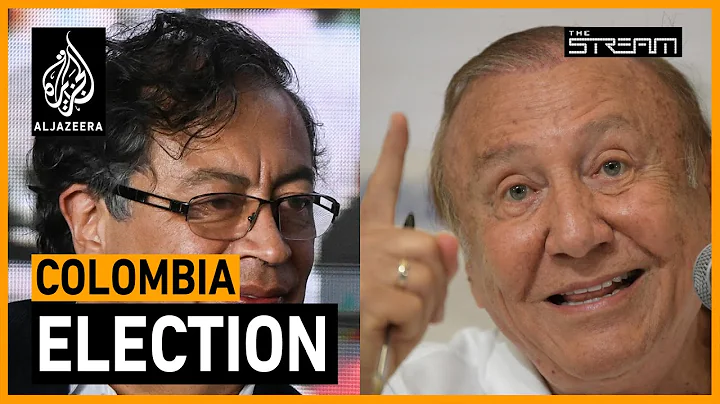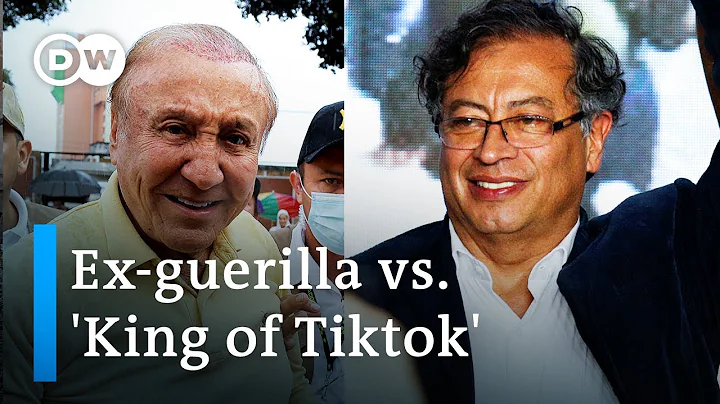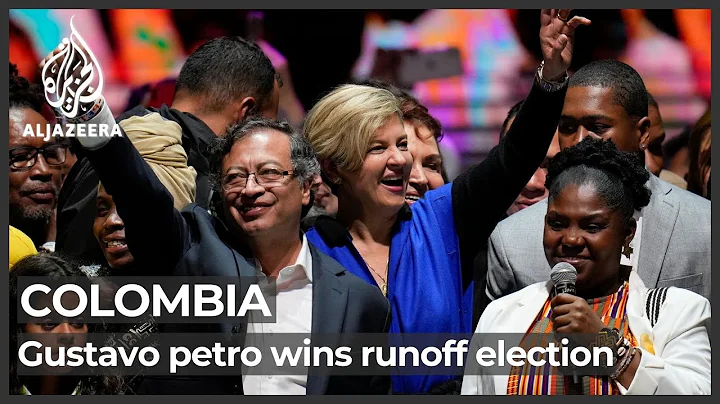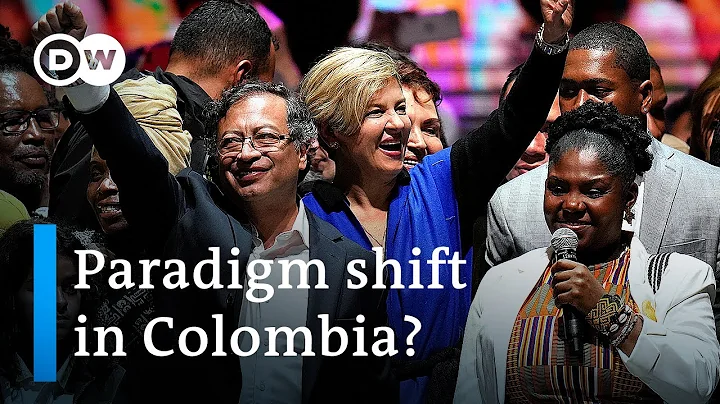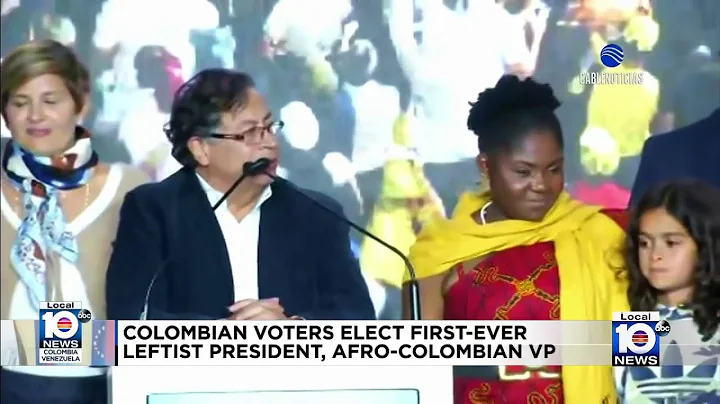
On June 19, Petro (middle) team celebrated their victory.
In the second round of voting for the Colombian presidential election on June 19, Gustavo Petro, the candidate of the left-wing campaign alliance "Colombia Historic Convention Alliance", finally defeated his opponent Independent with 50.5% of the vote. Candidate Rodolfo Hernandez was elected as the next president of Colombia and the first left-wing president in Colombian history.
"Colombia Trump" becomes the "King of Self-Explosion"
In the first round of voting on May 30, Petro and Hernandez received 40% and 28.19% of the votes respectively. Compared with Petro, whose vote share was basically consistent with the results of several polls, the 77-year-old "dark horse candidate" Hernandez has attracted wider attention. This independent candidate who also holds an "anti-establishment" stance denounced family clans and corruption in his campaign speech, and even proposed to use anti-corruption investigations to collect illegal income and use it to improve social welfare, which is quite " Kill the rich and give to the poor". At the same time, on the issue of economic system reform, Hernandez's economic governance ideas are consistent with the traditional right wing: he attributes most of the blame to corruption, refuses to completely reform the economic framework, and fiercely criticizes the policy ideas of the left.
Because of this, Hernandez was once regarded as a "life-saving straw" by the Colombian right wing. Even the conservative government representative and right-wing candidate Federico Gutierrez, who was unexpectedly eliminated in the first round of voting, expressed support for Hernandez at the first time, striving to compete with Hernandez, who also holds a right-wing stance. Sri Lanka joined forces to prevent the left-wing forces from coming to power.

Candidate Hernandez at the polls.
What is unexpected is that Hernandez frequently "self-destructed" during the campaign, constantly arousing criticism: long before the first round of voting, he had confused Hitler with Einstein in an interview. , calling the former his "respected philosopher"; in his campaign speech, Hernandez also made discriminatory remarks against women, saying that women "should raise their children at home", and when commenting on the issue of Venezuela , he called Venezuelan women It is a "factory for making poor children"; the most controversial thing is that this candidate who held high the banner of "anti-corruption" was accused by the Colombian Justice Minister of improperly issuing waste management contracts to make his own money while he was mayor. Son Benefits - Although Hernandez denies the charges, he will still stand trial in the case on July 21.
These controversies undoubtedly added a lot of trouble to Hernandez's campaign, and he ultimately lost to his opponent Petro, who rarely had a "black history."
Petro's coming to power has touched the relationship between the United States and Latin America
The election of Petro, who represents the left, is not only a landmark event for the real rise of left-wing forces in Colombia, but also a concentrated expression of the social evolution of Colombia in recent years. Not only has a left-wing party never taken charge of the Colombian government, but according to statistics from polling agencies, until 2014, the support rate of the left was even close to 0%.
went from 0% to more than 50%. The huge changes in public opinion in just eight years include not only dissatisfaction with the right-wing government's long-term incompetence and corruption, but also the long-term stigmatization and demonization of left-wing parties and guerrillas by the government and media. Team guilt. Especially since the outbreak of the COVID-19 epidemic, real problems such as reduced income, surge in unemployment and poverty have made the people increasingly look forward to the arrival of "changemakers".

In the current Colombian general election, there were more than 9 million voters under the age of 28, reaching a record high.
Petro's election is very likely to initiate a huge change in Colombia's economic model and government role, and will also profoundly affect Colombia's relationship with its traditional ally, the United States.
Zhou Zhiwei, executive director of the Brazilian Research Center of the Institute of Latin American Studies at the Chinese Academy of Social Sciences, said in an interview with reporters that Petro's election will have a great impact on the temperature and pace of cooperation between the United States and Colombia. "There is no doubt that the temperature between the two countries will lower and the pace will slow down. Colombia has always been an important ally of the United States. Whether at the regional or global level, Colombia's tendency to follow the United States in foreign policy has always been very obvious.After Petro comes to power, Colombia will distance itself from the United States due to differences in values and ideologies , which will also affect the temperature and rhythm of bilateral relations.
Zhou Zhiwei said that the victory of the Colombian left wing also made the overall return of the Latin American left wing clearer. Brazil will also hold elections in October, and the return of the left wing will also bring a new situation to the Latin American integration process. In the past few years, Here, Latin American integration is basically at a state of stagnation or even regression. Under the background of left-wing centralization, the political consensus of various countries will be further strengthened, which will promote the "accelerated development" of Latin American integration, and this phenomenon will also have a negative impact on the United States in The hegemony and differentiation policies in Latin America pose constraints. The United States will have fewer hands and fulcrum countries in Latin America, and major foreign policy issues will also face an unfavorable situation. In particular, Latin American integration itself has a color of resistance to the United States. This will also further narrow the policy space of the United States.
Whether it is the recent Summit of the Americas or the "Global Democracy Summit" at the end of last year, it has been shown that values diplomacy is an important part of the United States' foreign policy. At the Summit of the Americas, the United States It shows its attitude of continuous pressure on left-wing governments such as Cuba and Nicaragua . As Colombia turns left, the United States' value diplomacy in Latin America will face stronger resistance.
"At the same time, we must also note that Colombia-U.S. relations Although it is facing a 'cooling down', Colombia is still unlikely to become another major anti-American country. "Zhou Zhiwei also pointed out, "Colombia has been a major ally of the United States for decades. The United States has a very close relationship with Colombia and is deeply involved with conservative forces and interest groups in Colombia. We can also see from the election vote rate that although Petro won, his advantage was less than 3 percentage points, which reflects the polarization of Colombian politics. In the congressional election in March, the Historical Convention Alliance headed by Petro had very limited seats in the parliament. This will most likely lead to a government-chamber struggle during Petro's term. This situation also limits its internal affairs. The extent of adjustments in foreign policy, whether it is domestic reforms such as land and tax systems, or adjustments to foreign policies, will encounter great resistance from the parliamentary level. At the regional level, the United States may also increase its efforts in values diplomacy and actively participate in the political processes of Latin American countries to shape a political situation that is in line with U.S. interests. Political polarization, left-right competition, and social conflicts may all provide opportunities for the United States to pursue color revolutions and values diplomacy. Therefore, the policy methods used by the United States to instigate color revolutions are particularly worthy of high vigilance. "
Author: Zhang Junrong
Editor: Shen Qinhan
Pictures: New York Times, Spanish newspaper El Pais
